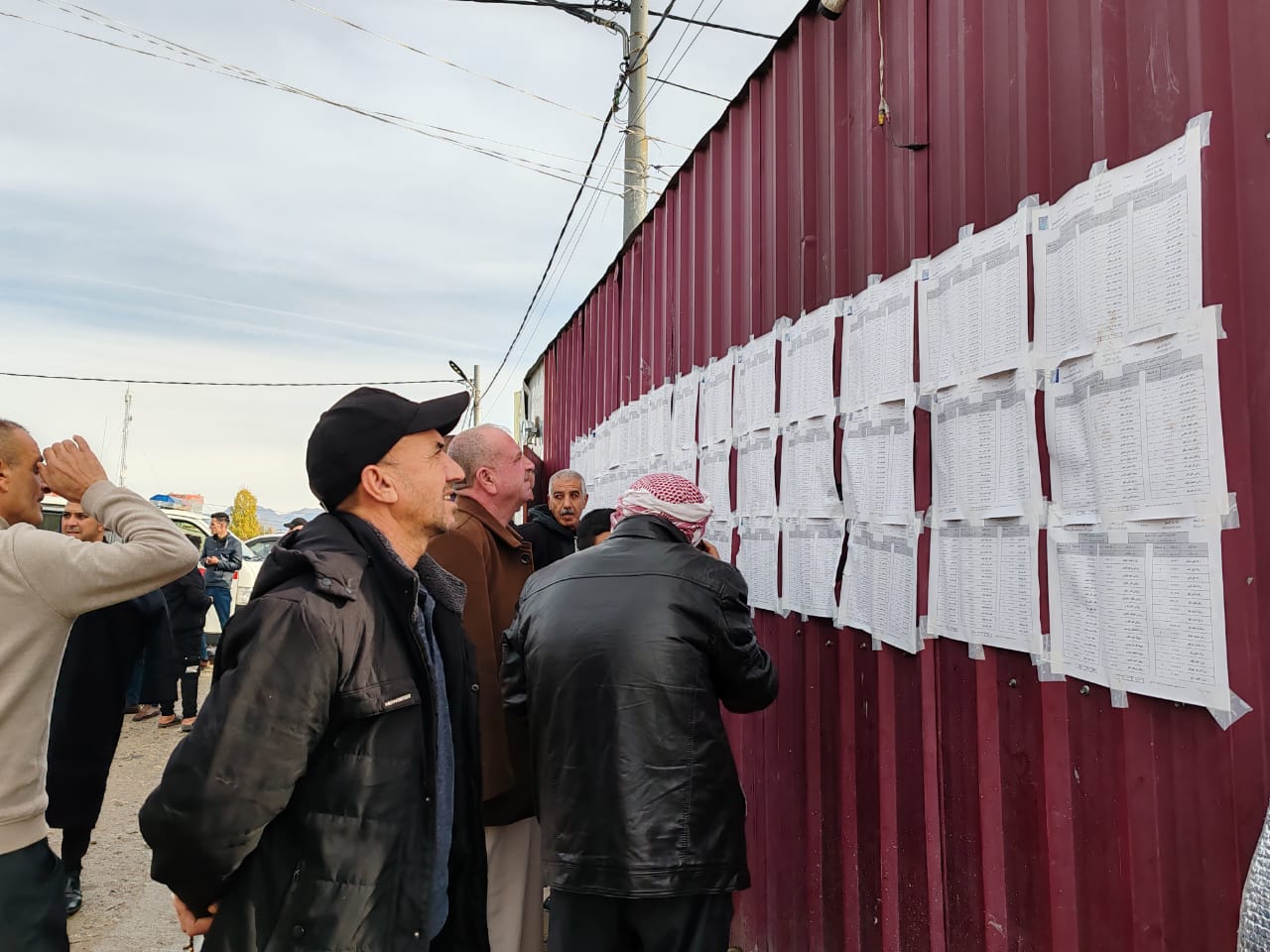The counting and sorting process of ballot boxes of early voting for Provincial Council in Duhok Northern Province show that invalid votes were as much as votes of the key role player in the region and came second, beating the traditional rival of the ruler in the Iraqi Kurdistan Region IKR
The 28 special ballot boxes in Dohuk that were not sent to Baghdad and whose votes were manually counted and sorted contained about 4,000 invalid votes, a number close to the total number of votes that went to the Kurdistan Democratic Party KDP which gathered 4,758 votes.
General voting for the provincial council elections began at 7 am (Baghdad time GMT+3) up to 6 pm on Monday, December 18, 2023, throughout Iraq, excluding the Iraqi Kurdistan Region IKR, while early voting for the Iraqi Security Forces ISF and the displaced was held two days earlier.
According to the figures by the Iraqi Independent High Electoral Commission IHEC, over 15 million people in the governorates of Iraq were entitled to participate in general voting to nominate 285 members for the provincial councils. The voting process was according to the biometric card.
The provincial councils have administrative and financial power as they draw the plan for the reconstruction of the province, maintenance of the public services in addition to nomination of the governor, his duties and director general of the state departments in the province.
On Thursday, December 21, the Dohuk Office of the IHEC began the process of manual counting and sorting of 28 special ballot boxes for the displaced voters and members of the ISF in the provincial council elections, which were not transferred to Baghdad due to some technical problems. The operation ended on Friday, December 22.
Khaled Abbas, head of the IHEC Duhok office, told KirkukNow, there were 4,000 invalid votes in 28 boxes out of 131 private polling stations.
“The reason goes back to the voter himself. Every ballot paper has been counted invalid for various reasons.”
If a voter elects no or more than one political entity, or more than one candidate, and if he has not elected any political entity, or has not marked the place he should with the ballot pen, the paper shall be considered invalid.
The KDP came in first place with 5,758 votes, followed by the Patriotic Union of Kurdistan PUK with 2,424 votes, he added.
According to the election law, after the polling centers close, the results must be sent electronically to the main center of the Commission and the votes must be counted and sorted manually inside the electoral center. If there are problems with one of the boxes, it is transferred directly to the IHEC headquarter in Baghdad.
According to the procedures of the Supreme Security Committee for Elections, priority is given to transporting the electronic memory stick by air to the main center of the Commission in Baghdad.
Abu Haitham, from the KDP and one of the observers of the process of counting and sorting the votes of the special ballot in Dohuk, told (KirkukNow) that there is “hope that the Kurdistan Democratic Party will obtain another seat in the Nineveh Provincial Council, relying on the results of the special vote, to raise the number of its seats to five but that depends on the completion of the counting and sorting of all other boxes.”
The KDP comes second in Nineveh Governorate with four seats, after the Nineveh for its People List headed by former Governor of Nineveh Najm al-Jubouri, which won five seats.
Regarding the progress of the manual counting and sorting process in Dohuk, head of the IHEC Duhok office said, “The process went smoothly. Political parties and media institutions were present during the process of counting and sorting the votes of the 28 ballot boxes.”
According to statistics from the IHEC in Iraq, 1,002,393 voters were entitled to participate in the special ballot, which is equivalent to more than 6% of the total number of voters, over 16 million voters.
Over 48,000 displaced voters were among the participants in the special vote, all of them residing in the camps of the IKR, where 120 polling stations in 35 electoral centers were allocated, most of them in Dohuk.





